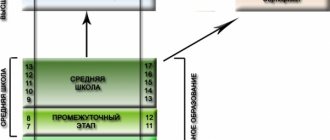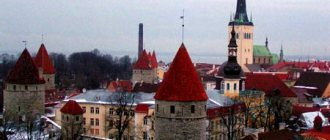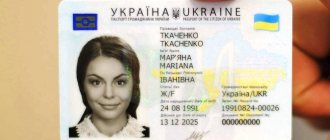A high quality education system and an open and multicultural society ensure that studying in Belgium provides its international students with a great academic and professional experience. In this article we will talk about the main advantages of studying in Belgium, admission rules, as well as the education of foreigners in this country
Education in the country for foreigners
There are several resources on the Internet that provide information related to education in Belgium for international students. The Study in Belgium website offers interesting content with information on scholarships for international students in all disciplines. Belgium is also one of the countries that allows foreign students to work officially 4 hours a day in order to earn extra money and reduce study costs. On the website of the Belgian Public Employment Service you can find additional information regarding the rules for drawing up a work contract, as well as possible jobs.
After completing the course, many international students stay to pursue an internship with one of the companies to confirm their acquired professional skills at university, or look for their first job in Belgium. Almost all universities have careers departments that offer students assistance in planning their careers. These departments also provide advice on writing good resumes, cover letters and interview preparation.
Advantages of studying at Belgian universities
Successful students from Russia and the CIS countries choose Belgian universities for several reasons:
- High level of education. According to the National Center for Education Statistics (NCES), 42.2% of Belgians under the age of 30 have a tertiary education, while in other European countries the percentage of the population with a tertiary education is only 30%. Belgium is in 19th place in the ranking of countries with the highest level of education according to the international program PISA and in 18th place in the UN Education Index. Students from the Flemish part of the country are considered especially successful.
- Diversity of languages and cultures. Belgium's universities host students who speak Dutch, English, French and German, providing a great opportunity for cross-cultural communication and broadening one's horizons. Belgian universities take an active part in Erasmus programs, and therefore are popular among students from the European Union and beyond.
- Budget cost of training. Compared to countries such as the Netherlands, Switzerland and the UK, the cost of studying in Belgium is quite reasonable for the average foreign student. On average, studying at a Belgian university costs 4,000 euros per year, and in public universities this amount sometimes does not exceed a thousand euros per year.
Receiving higher education in Belgium gives the student the opportunity to find a job in any European country, since Belgian diplomas are valued throughout Europe.
Do you have questions about applying to universities in Belgium? Get a free consultation!
- Selection of educational institutions taking into account your requirements
- Registration of documents and visas
- Official tuition prices without agent commission
- Full support at all stages of training
- Monitoring your child 24 hours (if necessary)
Admission to a Belgian university
Entry requirements for Belgian educational institutions depend on the academic level as well as the field of study.
In order to be admitted to a particular university program, you must have a senior high school certificate (certificate) or diploma equivalent to the educational standards of Belgium. Foreigners who are not citizens of one of the European Union countries are required to apply for recognition of previous education through the Belgian Ministry of Education.
Those who want to study in a master's program or graduate school must have a university degree in the same field. It is also necessary to have personal or professional experience in a particular field that will satisfy certain selection criteria set by the educational institution.
List of required documents upon admission:
- certificate (secondary school education) or diploma in higher education (or both when applying for a master's degree)
- confirmation of financial availability to live in Belgium during studies. Usually a certificate of sponsorship is given by the parents; before submission, this document is certified by the Belgian embassy
- certificate of no criminal record
- international passport
On the other hand, all foreign applicants must have health insurance, a certificate confirming knowledge of the French language (for universities that are located in the French community) or German language (for the Flemish community).
Higher education in Belgium
The birthplace of comics and chocolate and at the same time the capital of the main European and international organizations, small and charming Belgium is increasingly attracting not only tourists, but also students who dream of a prestigious diploma and a chance to find a job in Europe. In this article we will talk about how higher education works in Belgium, the best universities and training programs, as well as all the opportunities to reduce the cost of studying in Belgium.
Higher education system
Due to the bilingual nature of Belgium, the west of the country has long adhered to the French education system, and the eastern regions to the German and Dutch ones. But after the Bologna process, the higher education system in Belgium, as in most European countries, became common, three-level: bachelor, master and doctor. As an echo of the past, only the names of the degrees remain: Bachelor - Candidature, Master - Licenciate. However, different professions will require different numbers of years of study even within the same degree, for example, lawyers and pharmacists study 5 years for a bachelor's degree instead of the standard 3 years.
In Belgium, higher education is the responsibility of communities, not the entire government. Belgium is divided into three communities: Flemish, French and German. The government of each of them runs the universities and bears the costs of education.
There are two types of higher education institutions: university and non-university. University institutions include universities and higher schools directly, non-university institutions include educational institutions with a long (bachelor's degree + master's degree, 4 years of study) and short (bachelor's degree, 2-3 years of study) cycle of study, this is the Belgian analogue of colleges and institutes. Universities and high schools provide academic education, while colleges provide vocational education to students. Bachelor's and master's degrees can be obtained in all types of universities, and a doctorate (in Belgium it is called "agrege") only in universities and high schools. Due to this difference, in Belgium there are 2 bachelor's degrees: professional and academic. Often, an academic degree implies further study in a master's program.
Due to the difference in degrees of diplomas, there is also a difference in the minimum threshold of ECTS points for moving on to the next course and for obtaining a diploma: university students must obtain at least 60 credits (points) per year, college and institute students need to obtain 20 credits .
In Belgium, three languages are used at the official and unofficial level: English, French and Flemish (a dialect of Dutch). Universities also practice teaching in German. Each undergraduate and graduate program is taught in any of four languages. In addition, the student can choose the option of studying in several languages, which will only be a plus for his future life and career.
An important reason for choosing Belgium as a country for educational emigration is the absence of tuition fees. Students pay only a small annual fee and purchase study materials throughout their years of study.
Belgian universities are divided into state and non-state. In public educational institutions, the costs of education are borne by the community governments. In non-state universities, patrons, foundations or organizations that manage the educational institution pay for students.
Students study using standard methods: lectures, seminars, colloquiums. Much attention is paid to educational practice, to which students are required to devote at least six months of the total study time. Often the most talented students receive job offers during their internship.
Another advantage of higher education in Belgium is the absence of entrance tests for most specialties (except medicine, engineering, art). In addition, unlike most European countries, which require a preparatory year of study before admission, Russian applicants can immediately enroll in the first year of any Belgian university.
However, for applicants from other countries in Belgium there is a restriction: the number of foreign students should not exceed 2% of the total number of students in the country. But since tens of thousands of people study at Belgian universities, this percentage is actually a large number.
Regarding funding opportunities, scholarships are awarded only by Belgian community governments and apply to postgraduate research (doctoral studies). This is due to the fact that higher education in Belgium is already free for all students. To receive a scholarship to conduct research and defend a doctoral dissertation, you need to contact the administration of the community to which the university you have chosen to work belongs to. Sometimes information about scholarships is published on the websites of the Government of the Flemish Community, the Government of the French Community and the Government of the German Community.
Universities, in turn, provide small (from 100 to 400 euros) monthly scholarships to students with the highest academic performance.
Another opportunity to improve your financial condition while studying is to work. Students in Belgium are allowed to work, but not more than 20 hours per week.
Higher education in Belgium: choosing a university and program
Most universities are concentrated in the Flemish region: Brussels, Antwerp, Ghent, Leuven. However, other cities and regions are known for their higher education institutions. Let's look at the most popular and popular Belgian universities.
Catholic University of Leuven (Leuven)
One of the oldest universities in Belgium and Europe. The university has 16 faculties, but the strongest and most popular are the philological, philosophical, historical, and mathematical faculties. 4 bachelor's programs and 80 master's programs are taught in English. Of the 56 thousand students, 5 thousand are foreigners. The university fee for all programs is 600 euros per year.
Ghent University (Ghent)
One of the three most important universities in the Flemish region. Priority areas of the university: medicine, engineering, architecture, economics. Bachelor's programs are taught only in Dutch, master's programs are taught in English and Dutch. Applicants to undergraduate studies are offered language courses at the university costing 2,250 euros per year. There are 38 thousand students studying at the university, 3 thousand are from other countries. The annual university fee is 600 euros.
Free University of Brussels (Brussels)
The capital's non-state university, the most important center for training personnel in the specialties of “Political Science”, “History” and “International Relations”. A large percentage of graduates became Nobel Prize winners. Bachelor's and master's programs are conducted in English and French - the practice of teaching simultaneously in both languages is widespread at the university. There are 25 thousand people studying at the university, including 6 thousand foreigners. The annual university fee is 835 euros.
Liege State University (Liege)
The university is known for its training in the humanities: linguistics, history, philosophy, art, media. All undergraduate programs are taught in French, and some master's programs are taught in English. If desired, an applicant can take free French courses before enrolling. There are 18 thousand students studying at the university, 4 thousand of which are foreign students. The annual university fee is 835 euros, but upon admission, students pay a registration fee, the amount of which depends on the specialty and varies from 1,500 to 3,000 euros.
University of Mons-Hainaut (Mons)
Another prestigious state French-speaking university. The main faculties of the university are engineering, architecture, mechanical engineering and natural sciences. Some undergraduate and graduate programs are taught in English, all undergraduate programs are taught in French. 22 thousand people study at the university, including 2 thousand foreigners. The amount of the annual contribution depends on the chosen specialty (from 600 to 900 euros per year).
Antwerp State University (Antwerp)
One of the leading universities in Belgium in the Flemish region. Priority areas: humanities and natural sciences. The university issues diplomas of all three degrees: bachelor, master and doctor. There are 5 thousand foreigners studying at the university out of a total of 22 thousand students. Teaching is conducted in Dutch and English, but before admission, applicants are required to take a one-year course in the Dutch language (cost: 4 thousand euros). The annual university fee is 890 euros.
Vesalius College (Brussels)
A well-known metropolitan state college that issues bachelor's degrees. Foreigners are offered 4 undergraduate programs taught in English: “Business Administration”, “Media and Communications”, “International Relations”, “International Law”. College education, unlike universities and higher schools, is paid: 5 thousand euros per academic year. However, the college provides scholarships covering up to 50% of tuition fees to successful students.
European College (Bruges)
The prestigious college provides a one-year master's degree program for applicants who already have a bachelor's degree. Teaching is conducted in English and French (optional). The college offers the following master's programs: “European Law”, “European Economics”, “Political and Administrative Studies”, “EU International Relations”. There is also a branch of the college in Warsaw. Studying at the European College is paid (from 15 thousand euros), but the educational institution cooperates with the ministries of foreign affairs of many countries, and students can receive a scholarship with full coverage of tuition fees.
Higher education in Belgium: admission to university
Applicants from other countries are advised to apply no later than 10 months before the first academic year. This long period is explained by the long process of preparing documents for moving and studying.
As mentioned above, admission to most specialties at universities in Belgium does not require entrance examinations. But a foreign applicant needs to collect an extensive list of documents:
- identification;
- a certificate or diploma of previous education, translated into one of the official languages and certified by a notary;
- Confirmation of financial solvency to live in Belgium (certificate of parental income);
- application and questionnaire (on the website of a specific university);
- certificate of no criminal record;
- body check;
- two visa forms (can be downloaded from the Belgian Embassy website) and two photographs in digital format (according to the rules for obtaining a Belgian visa);
- certificate of language proficiency (English, French, German or Dutch). The minimum passing scores for the certificate are indicated on the website of each university;
- medical insurance.
A package of documents is sent by email to the selected university. The admissions committee conducts remote interviews with most foreign students. Upon successful completion of the interview, the university sends the documents to the immigration service, and from there, after verification, they come to the Belgian Embassy in the applicant’s country. Then the applicant only needs to obtain a ready-made student visa and go to Belgium.
Accommodation and adaptation
Almost every university, for a fee (from 100 to 400 euros per month), provides students with rooms in dormitories on the territory of the university. There is also a canteen on campus; meals there will cost much less than in cafes and restaurants.
Students also often rent apartments. Several people rent housing and share all expenses equally. The minimum cost of a rented apartment in Belgium starts from 300 euros.
Most universities have communities of foreign students, unique university clubs. Community members organize themed parties, help first-year students get comfortable at the university, and resolve everyday and educational issues.
Belgium is an amazing country with a unique atmosphere. The easy-going nature of the Belgians and the country's image on the world stage create favorable conditions for living, working and studying.
useful links
Embassy of Belgium in the Russian Federation
Belgian Federal Foreign Service
Tags:
Belgium
The best universities in the country
The most famous universities in Belgium are represented by the following educational institutions:
- the first, located in Leuven, has been in operation since 1425. Teaching is conducted in Dutch and English. Branches are also located in other cities. More than 56 thousand students study here, 9,000 of whom are foreigners;
- Ghent is the next most prestigious, boasting many famous alumni. The number of faculties is eleven;
- Free University of Brussels is the most popular French-speaking Belgian university. A third of the teaching staff and students are foreigners. Training is conducted at 12 faculties.
These are the most famous of the Belgian universities. But admission to other institutions is also possible.
How much does education cost in the country?
Unlike studying at primary and secondary schools, classes at higher institutions require payment. The amount of registration fees and other fees is determined by the communities, depending on the affiliation of the university.
To obtain a medical education in Belgium or a diploma in another specialty, local residents will have to pay approximately 600 euros for 10 months of study. The Catholic University of Leuven charges approximately the same price.
Foreign students, in addition to the basic amounts, are required to make additional payments. The final prices for a course of study for the same period range in euros from 1900 to 4135. Each institution sets its own cost.
Beginning and end of the school year
Universities and colleges offer long and short course programs. Typically the duration is three or four years. But in the second case, basic training is added to the special program of the first cycle, designed for 2 more.
In all higher education institutions, classes are held in semesters:
- September – January;
- February – June.
The level of performance in any discipline is determined by the amount of points or credits. The passing score for college is from twenty to thirty, for university – sixty.
Documents for visa application
Once a student is accepted to study at a university, he needs to begin applying for a visa and residence permit in Belgium in order to legally live and receive education in this country. Submission of documents for a class D visa is carried out in person at the Belgian consulate at the applicant’s place of residence. An appointment to submit documents is made a few days before the procedure. Before submitting documents, you must collect originals and photocopies of some documents in advance:
- Visa application form with completed fields and signatures (in two copies);
- A valid passport (with more than 12 months left until expiration);
- Documents that confirm the student’s admission to a higher education institution (for example, a certificate from the university about enrollment in the faculty);
- If the education will not be full-time, proof that this training is preparation for full-time and the main occupation of the future student (curriculum and letter of recommendation);
- Documents providing access to education (certificates, diplomas, list of marks - an appendix to a diploma or certificate);
- A bank statement confirming the availability of funds for living in Belgium;
- Medical certificate of health;
- Medical insurance with coverage of 30,000 euros for the entire duration of the visa;
- Certificate of no criminal record from the police.
Copies of documents and originals are provided to the Belgian diplomatic mission, which the applicant then receives back. All documents (except passport and insurance) must be legalized and apostilled. The translation of documents must be legalized twice: as a separate document in accordance with the procedure outlined in the country of origin, and then at the Belgian consulate.
Scholarships to study in Belgium
The Flemish and French communities of Belgium offer several scholarship programs for international graduate students wishing to pursue bachelor's or master's degrees. For example, grants issued by the French Commune of Belgium, the University of Brussels and the University of Wallonia. The grant from the University Agency of Francophonie is intended for students, teachers and researchers. It is quite difficult to get them, since the competition is very high. And often these are scholarships for short programs - up to a year. Requirements for competitors are knowledge of one of the languages, an interesting research project or thesis, high grades in the last educational institution.
Languages for adults in Belgium
Our School and University Enrollment Services
Belgian education system
The education system in Belgium reflects the cultural and linguistic structure of society, which is divided into French-speaking Walloons, Flemings and a German-speaking minority. Each of these groups has autonomous systems for teaching schoolchildren and students. There are schools that belong to two communities at once, for example, Franco-Flemish or Franco-German. The Flemish, French and German communities are independent and each has its own minister of education. But all these three systems work according to a single structure and differ only in details. The influence of the central government on education is small, it only determines the minimum programs that a student must know, the duration of compulsory education and provides funding to communities.
Levels of education in Belgium
Belgian education is divided into pre-school, primary, secondary and tertiary. Children are required to study from the age of six to eighteen until they receive a high school diploma. The schools themselves are of three types depending on who owns them:
- community schools,
- provincial and municipal schools,
- Catholic schools. It has the largest number of students in the country.
State inspectors monitor the quality of education. Parents themselves choose which school to send their child to.
Belgian education is divided into preschool, primary, secondary and tertiary
Video: education in Belgium
Preschool education
Children attend preschool institutions (école maternelle, kleuterschool) from 2.5 years to 6 years. Interestingly, preschool education is free, but not compulsory. Nevertheless, up to 90% of Belgian children study in preschool institutions. Children are sent to kindergartens at an early age, since many parents work. Enrollment of children into preschool institutions is carried out several times a year. Administratively and organizationally, kindergartens are assigned to primary schools.
Belgian children in kindergartens are under the strict control of teachers
The learning process in kindergartens
During the lessons, children play, learn independence and self-expression, develop their abilities, and show creative skills. Lessons are held in a free, interactive form, without a rigid program and control of knowledge acquisition. Children must learn to respect each other and work in a group. The approach to each child is individual; a permanent teacher is assigned to the group. Kindergartens have computer classes, specially equipped gyms, swimming pools, and playrooms for the little ones. Activities are very popular in preschool institutions. They are different - from an acting club to handicraft classes. A group of psychologists is required to work in kindergartens.
Video: preschool education in Belgium
Top 3 universities in Belgium
1. Catholic University of Leuven (KU Leuven) is the oldest and most ranked university in Belgium, one of the most famous and leading research centers in Europe. The university has 16 faculties. More than 56,000 students. The choice of disciplines is huge. The strongest areas are the humanities and arts. 4 undergraduate programs - in English. 180 different master's programs, 80 of which are in English. An important factor for a student from Russia is that the University of Leuven has a special partnership with the Russian Ministry of Education and Science. Bachelor's degree - from $700 per year, master's degree - from $1,500 per year. You can find out about scholarship opportunities on the website: https://www.kuleuven.be/scholarships.
2. Free University of Brussels (VUB) is an independent university in Brussels teaching in Dutch. In the ranking of the 200 best universities in the world. Specializations: bioengineering, political science, history, linguistics, construction, chemistry, economics, philosophy. The university has a high level of research activity. Tuition is about $1200 per year.
3. Ghent University is one of three Flemish universities. The strongest university in the field of psychology, veterinary medicine, engineering and nursing. The most developed are medicine and biology. Bachelor's degree - $1150 per year. Master's degree - $1300 per year.
Secondary (school) education
Schooling in Belgium is provided to children from 6 years of age, in two stages - primary and secondary schools. Most schools are public and free, but there are also private ones, mainly for certain categories of citizens (children of diplomats, sailors). Often private schools are owned by the Catholic Church.
For foreign speakers with a weak level of language, there are transitional classes: in them the speed of presentation of materials is facilitated, which helps to increase the level. There is a Russian school in Belgium at the Russian embassy; children of embassy workers and some other categories study without paying any fees.
Primary school is divided into 3 stages of 2 years each, separate from secondary school. Classes start at 8:30 and last until a maximum of 15:30. Meals are available for a fee, upon request. In primary school, children are taught reading, writing, arithmetic, and languages (French, English, German, Dutch). Children attend playrooms, a swimming pool (if the school has one), gyms, libraries, computer classes, and elective clubs; Psychologists work with them.
At the age of 12, the student moves to secondary school, also divided into 3 stages (two years each, with only the first four being compulsory). Secondary schools in Belgium are divided into types:
- General education schools (Algemeen Secundair Onderwijs): without a professional orientation, they study mainly theory, it is expected to continue their studies at a university;
- Technical (Technisch Secundair Onderwijs) schools: intensive study of mathematics, history, languages, natural sciences. Afterwards, graduates of schools with an emphasis on the technical side of the issue usually continue to study, and those who graduate from schools with an emphasis on practice compete in the labor market;
- Vocational schools (Beroepssecundair Onderwijs): teach the professions of carpenter, auto mechanic, jeweler, mason, do not require further education;
- Institutions of secondary art education (Kunstsecundair onderwijs): preparation for continuing art studies.









